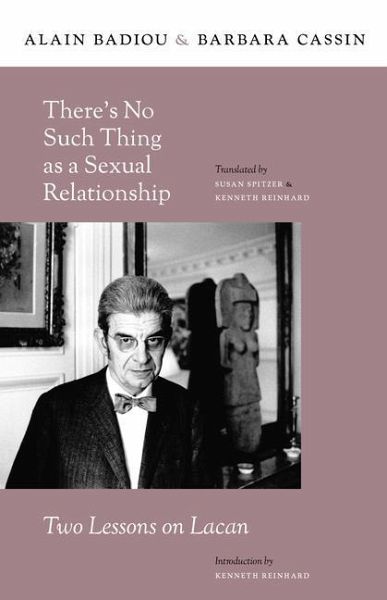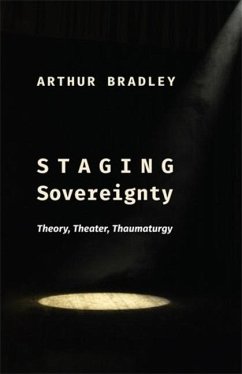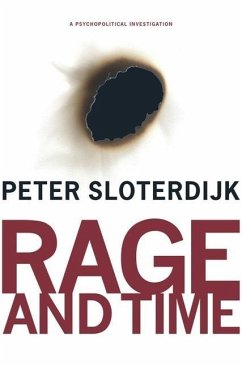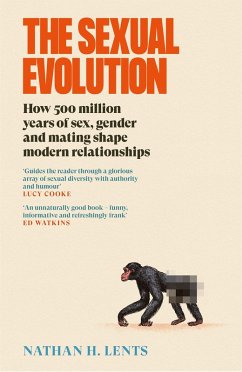Nicht lieferbar

There's No Such Thing as a Sexual Relationship
Two Lessons on Lacan
Mitarbeit: Reinhard, Kenneth; Übersetzung: Spitzer, Susan; Reinhard, Kenneth
Versandkostenfrei!
Nicht lieferbar





Badiou and Cassin engage with Lacanâ s Lâ Etourdit, exploring how love sheds light on the nature of reality and what counts as truth.
Alain Badiou (PhD, Philosophy, Ecole Normale Superieure) holds the Rene Descartes Chair at the European Graduate School; he also teaches at the Ecole Normale Superieure and the College International de Philosophie in Paris. He is the author of several successful novels and plays as well as more than a dozen philosophical works, including his masterwork, Being and Event (Continuum, 2007), and several Columbia titles, includng Plato's Republic (2013) and Jacques Lacan Past and Present (2016).
Produktdetails
- Insurrections: Critical Studies in Religion, Politics, and Culture
- Verlag: Columbia University Press
- Seitenzahl: 136
- Erscheinungstermin: 28. März 2017
- Englisch
- Abmessung: 216mm x 141mm x 15mm
- Gewicht: 194g
- ISBN-13: 9780231157957
- ISBN-10: 0231157959
- Artikelnr.: 47161988
Herstellerkennzeichnung
Libri GmbH
Europaallee 1
36244 Bad Hersfeld
gpsr@libri.de
"Jacques Lacan's 1973 essay 'L'Étourdit' is a pivotal, yet opaque and still under-appreciated, piece of his corpus. In Badiou and Cassin's concise tour de force, two significant thinkers in their own rights tackle this crucial-but-enigmatic Lacanian text. Through their combined efforts, Badiou and Cassin render 'L'Étourdit' crystal-clear, situating the later Lacan's teachings in relation to the history of philosophy and logic starting in ancient Greece. In the process, two of France's most important living minds provocatively address and weave together a range of topics: the distinction between the philosophical and the anti-philosophical; the relations between, on the one hand, language, logic, and ontology and, on the other hand, sex, love, and subjectivity; as well as truth, formalism, and the (in)famous Lacanian register of the Real. This three-way encounter between Lacan, Badiou, and Cassin, stimulating and surprising to equal degrees, will be enthralling for anyone interested in what philosophy and psychoanalysis have to say to each other." Adrian Johnston, Professor of Philosophy at the University of New Mexico at Albuquerque.
Für dieses Produkt wurde noch keine Bewertung abgegeben. Wir würden uns sehr freuen, wenn du die erste Bewertung schreibst!
Eine Bewertung schreiben
Eine Bewertung schreiben
Andere Kunden interessierten sich für






